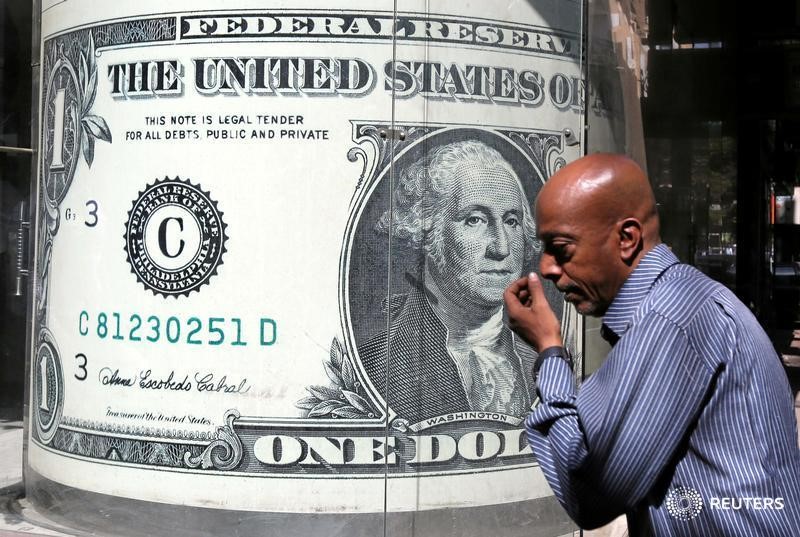By Peter Nurse
Investing.com - The dollar edged marginally higher in early European trade Tuesday, helped by concerns over the rise of Covid cases in Asia, but gains are minimal ahead of this week’s key payrolls release.
At 2:55 AM ET (0755 GMT), the Dollar Index, which tracks the greenback against a basket of six other currencies, traded 0.1% higher at 91.963, just below the two-month high of 92.408 reached on June 18, shortly after the last Federal Reserve’s meeting.
USD/JPY was 0.1% lower at 110.57, just below a nearly 13-month high of 111.11 reached last week, EUR/USD was down 0.1% at 1.1913, GBP/USD fell 0.1% at 1.3868, while the risk-sensitive AUD/USD was up 0.2% at 0.7555.
The safe-haven dollar received a boost Tuesday as a number of regions in Asia struggled with the spread of the highly infectious delta variant of the Covid-19 virus.
Australia has locked down several cities, Indonesia is grappling with record-high cases, Malaysia is set to extend a lockdown and Thailand has announced new restrictions.
However, the greenback remains in a tight range ahead of a closely watched U.S. jobs report, with the Federal Reserve placing great emphasis upon the recovery of the labor market before reining in its ultra easy monetary policies.
With this in mind, Friday's payrolls data will be the market’s key focus this week, with economists expecting an increase of 675,000 jobs in June, compared with 559,000 in May.
That said, “it will probably take a jobs number closer to the one million mark to shake up the U.S. rates curve and FX markets once again,” said analysts at ING, in a note.
Ahead of this sees the release of the U.S. Conference Board's consumer confidence Index for June, at 10 AM ET (1400 GMT), which is seen rising to 119 after declining to 117.2 in May.
Elsewhere. NZD/USD rose 0.1% to 0.7033 after the Reserve Bank of New Zealand said economic activity in the country was returning to pre-Covid-19 levels although it still needed support.
The RBNZ last month became one of the first central banks in advanced economies to signal a move away from the stimulatory settings adopted during the pandemic after it hinted at an interest rate hike next year.
